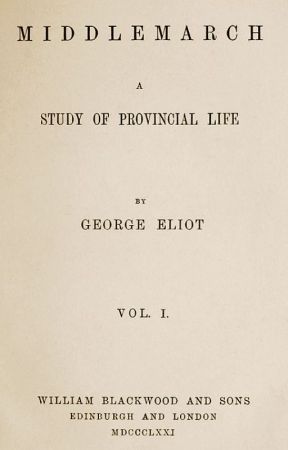"Du Erde warst auch diese Nacht bestandig,
Und athmest neu erquickt zu meinen Fussen,
Beginnest schon mit Lust mich zu umgeben,
Zum regst und ruhrst ein kraftiges Reschliessen
Zum hochsten Dasein immerfort zu streben.
--Faust: 2r Theil.
When Dorothea was again at Lydgate's door speaking to Martha,
he was in the room close by with the door ajar, preparing to go out.
He heard her voice, and immediately came to her.
"Do you think that Mrs. Lydgate can receive me this morning?"
she said, having reflected that it would be better to leave out all
allusion to her previous visit.
"I have no doubt she will," said Lydgate, suppressing his thought
about Dorothea's looks, which were as much changed as Rosamond's,
"if you will be kind enough to come in and let me tell her that you
are here. She has not been very well since you were here yesterday,
but she is better this morning, and I think it is very likely
that she will be cheered by seeing you again."
It was plain that Lydgate, as Dorothea had expected, knew nothing
about the circumstances of her yesterday's visit; nay, he appeared
to imagine that she had carried it out according to her intention.
She had prepared a little note asking Rosamond to see her, which she
would have given to the servant if he had not been in the way,
but now she was in much anxiety as to the result of his announcement.
After leading her into the drawing-room, he paused to take a letter
from his pocket and put it into her hands, saying, "I wrote this
last night, and was going to carry it to Lowick in my ride.
When one is grateful for something too good for common thanks,
writing is less unsatisfactory than speech--one does not at least
_hear_ how inadequate the words are."
Dorothea's face brightened. "It is I who have most to thank for,
since you have let me take that place. You _have_ consented?"
she said, suddenly doubting.
"Yes, the check is going to Bulstrode to-day."
He said no more, but went up-stairs to Rosamond, who had but lately
finished dressing herself, and sat languidly wondering what she
should do next, her habitual industry in small things, even in the
days of her sadness, prompting her to begin some kind of occupation,
which she dragged through slowly or paused in from lack of interest.
She looked ill, but had recovered her usual quietude of manner,
and Lydgate had feared to disturb her by any questions. He had

YOU ARE READING
MIDDLEMARCH (Completed)
ClásicosMiddlemarch, A Study of Provincial Life is a novel by the English author George Eliot, first published in eight installments (volumes) during 1871-72. The novel is set in the fictitious Midlands town of Middlemarch during 1829-32, and it comprises...
